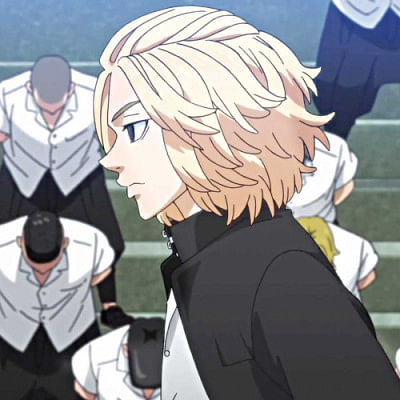Tokyo Revengers: Interesting Watch with Minor Flaws

Tokyo Revengers' first season has ended with 24 episodes, covering up to the manga's Valhalla arc. The manga series by Ken Wakui is still ongoing with more than 35 million copies sold. The show has been widely popular due to its unique setup and characters, but popularity alone does not dictate a show's quality.
Since the two major world wars, military veterans have had difficulty with re-adjusting to society. Many of them ended up forming gangs to fuel their fervour and escape from their post war trauma, with notorious examples being the USA's Hell's Angels and Japan's Bosozoku. The latter inspired a lot of rebellious Japanese youth to embrace delinquency and form their own niche gangs. Delinquent representation has been widely depicted in popular shows like Yu Yu Hakuho, Great Teacher Onizuka, Beelzebub, and Slam Dunk.
Similarly, many anime have dabbled with the concept of time travel and time leaping, like Erased and Steins;Gate. This topic itself remains very vague and is very difficult to implement in a show without introducing more continuity errors.
Nevertheless, Tokyo Revengers marries these two themes in a meaningful way while narrating a very interesting story.
The protagonist, Takemichi Hanagaki, is a 26-year-old part timer who coincidentally learns that his middle school ex-girlfriend Hina and her brother Naoto have been killed by the infamous Tokyo Manji gang or Toman. One day while commuting, Takemichi gets pushed in front of a train, which triggers his ability to go back in time by 12 years. With new possibilities, Takemichi keeps leaping between his past self and the present day to befriend Mikey and Draken, the leaders of Toman and prevent Hina's death.
Unfortunately, Takemichi's efforts always keep falling short, thus forcing him to leap again and again to make things right and end the despair.
The show remains unique by blending two very different subjects while keeping them conceptually coherent. Time leaping is handled carefully, with minute details being revealed steadily. The author's past involvement with gangs is reflected through his rather accurate depiction of delinquents in the show. Takemichi is the very embodiment of an underdog, and his perseverance makes you want to root for him. The other core characters are also properly fleshed out, with their badassery being displayed while also exposing their soft side.
While the protagonist's determination makes him likeable, his constant crying makes him annoying more often than not. Despite knowing the future, his inability to change many of the past scenarios portray him in a pathetic manner. Takemichi might be the only adult in the past timeline, but he feels no different than the rest of the cast. Though that is mainly because others around him do not act like kids, the characters just feel like shrunk down adults. However, some of their actions remain so nonsensical that they cannot be taken seriously at times. The action scenes are flat, which is a shame as they have a more dynamic impact in the manga.
Tokyo Revengers is no magnum opus, nor is it mediocre. It has a fresh take on the subjects it tackles and remains enjoyable throughout its runtime. The first season was a good watch, but it can be elevated by addressing the flaws in the next season.

 For all latest news, follow The Daily Star's Google News channel.
For all latest news, follow The Daily Star's Google News channel. 



Comments